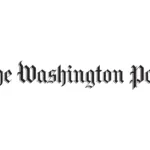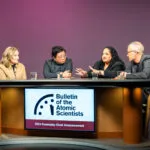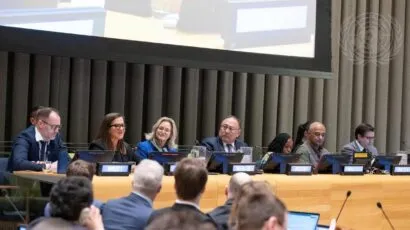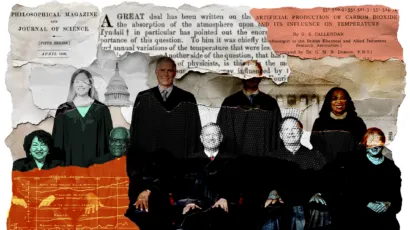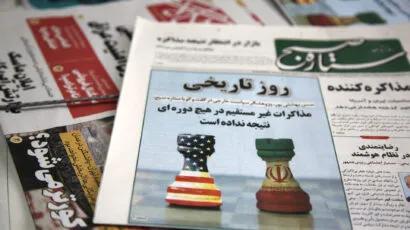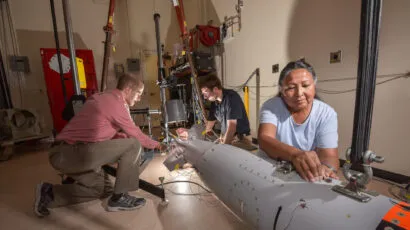For seven decades, the Bulletin of the Atomic Scientists has served as a discussion forum for urgent issues at the intersection of science, technology, and society. Born in the aftermath of World War II and a roiling debate over the control of the postwar atom, the Bulletin has been a sounding board for major nuclear-age debates, from atomic espionage to missile defense. Since the end of the Cold War, the magazine has featured an expanding array of challenges, including the threat posed by global climate change. The Bulletin’s contributors have expressed their public citizenship by helping to bring the political aspects of science into proper focus. They have stood up for the political freedom of science, and sought to harness scientific knowledge to responsible ends in the political arena. Such efforts are needed now, as they were in 1945.
Together, we make the world safer.
The Bulletin elevates expert voices above the noise. But as an independent nonprofit organization, our operations depend on the support of readers like you. Help us continue to deliver quality journalism that holds leaders accountable. Your support of our work at any level is important. In return, we promise our coverage will be understandable, influential, vigilant, solution-oriented, and fair-minded. Together we can make a difference.
Issue: Bulletin of the Atomic Scientists Volume 71 Issue 1
Keywords: Bulletin of the Atomic Scientists, Cold War history, Edward Teller, Eugene Rabinowitch, Federation of American Scientists, Hans Bethe, House Committee on Un-American Activities, J. Robert Oppenheimer, Ruth Adams
Topics: Uncategorized


